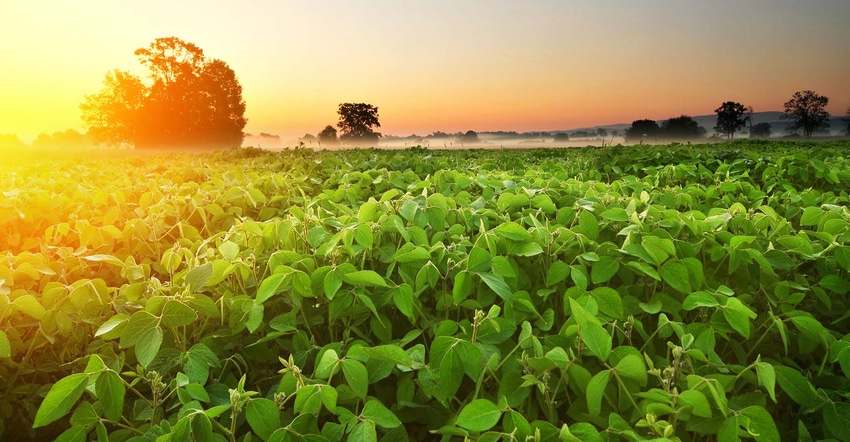
by Lydia Mulvany and Mario Parker
Monsanto Co., the world’s largest seed company, is counting on the world’s expanding appetite for genetically modified soybeans to carry it through the agricultural downturn.
Its Roundup Ready 2 Xtend soybeans will exceed 20 million acres in 2017 and surpass 40 million next year, the St. Louis-based company said Wednesday in a statement. The forecast comes even as the company has dealt with complaints in the U.S. this year about crop damage related to dicamba, an herbicide used in conjunction with Xtend soybeans.
The company also posted surprise profit for the fiscal fourth quarter. The shares rose in early trading.
Soybean demand in the U.S. is expected to increase 4.4% this year, according to the U.S. Department of Agriculture. That’s one of the few bright spots amid a sustained slump in the broader agricultural economy. American farmers are cash-strapped, with the government forecasting their income at $63.4 billion this year, down 49% from 2013. Their debt-to-income ratio has risen to the highest since 1984.
“That would be a very big deal,” if Monsanto is able to execute its plan to expand its soybean footprint, Matt Arnold, an analyst at Edward Jones & Co. in St. Louis, said by phone. “The product carries premium pricing” and that would hit the bottom line “if they penetrate that many acres.”
Monsanto is in the midst of trying to get regulatory approval for its $66 billion takeover by Bayer AG. The deal is likely to be delayed until early 2018, Bayer said in September.
Monsanto has done enough to give investors confidence that, even if the deal doesn’t go through, it can weather a persistent downturn, said Chris Shaw, an analyst at Monness Crespi Hardt & Co. in New York.
Monsanto also reported earnings for its fiscal fourth quarter. That’s typically its weakest quarter, since most sales in the U.S. have been concluded while Brazilian farmers have yet to get going, according to Oxgaard.
The company posted a profit excluding one-time items of 20 cents a share in the three months through August, beating the 42-cent loss that was the average of 14 analysts’ estimates compiled by Bloomberg.
Monsanto didn’t give a forecast for fiscal 2018.
To contact the reporters on this story: Lydia Mulvany in Chicago at [email protected]; Mario Parker in Chicago at [email protected]
To contact the editors responsible for this story: Simon Casey at [email protected]
Millie Munshi
© 2017 Bloomberg L.P
About the Author(s)
You May Also Like




